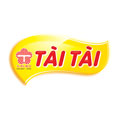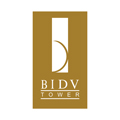The handbook combines:
- ISO/TS 22003, which outlines requirements for bodies issuing certifications to ISO 22000 on food safety management systems (FSMS)
- ISO/IEC 17021, which sets generic requirements for bodies carrying out audits
These contain everything that a certification body (CB) must know when carrying out FSMS audits or certification.
Food certification
Food safety is an increasingly important public health issue. The consequences of unsafe food can be serious and food safety management standards (such as the ISO 22000 series) help organizations identify and control food safety hazards.
Certification to a food safety management system standard such as ISO 22000 can help reassure customers that an organization has implemented a system for the management of food safety in line with its policy. But this only works if we can have confidence in the certification.
Confidence in certification
This is where ISO/TS 22003 can play a critical role, according to Jacob Faergemand, Co-Convenor of the group of experts who developed the document. The technical specification defines rules on, for example, auditor competencies and audit duration that CBs have to implement.
In the latest edition of ISO/TS 22003, the most important change – and one to which the CB will need to adapt – is the shift from a “qualification-based approach” to a full “competence-based approach” for the definition of auditor competence requirements.
For more information, read the interview with Jacob Faergemand.














